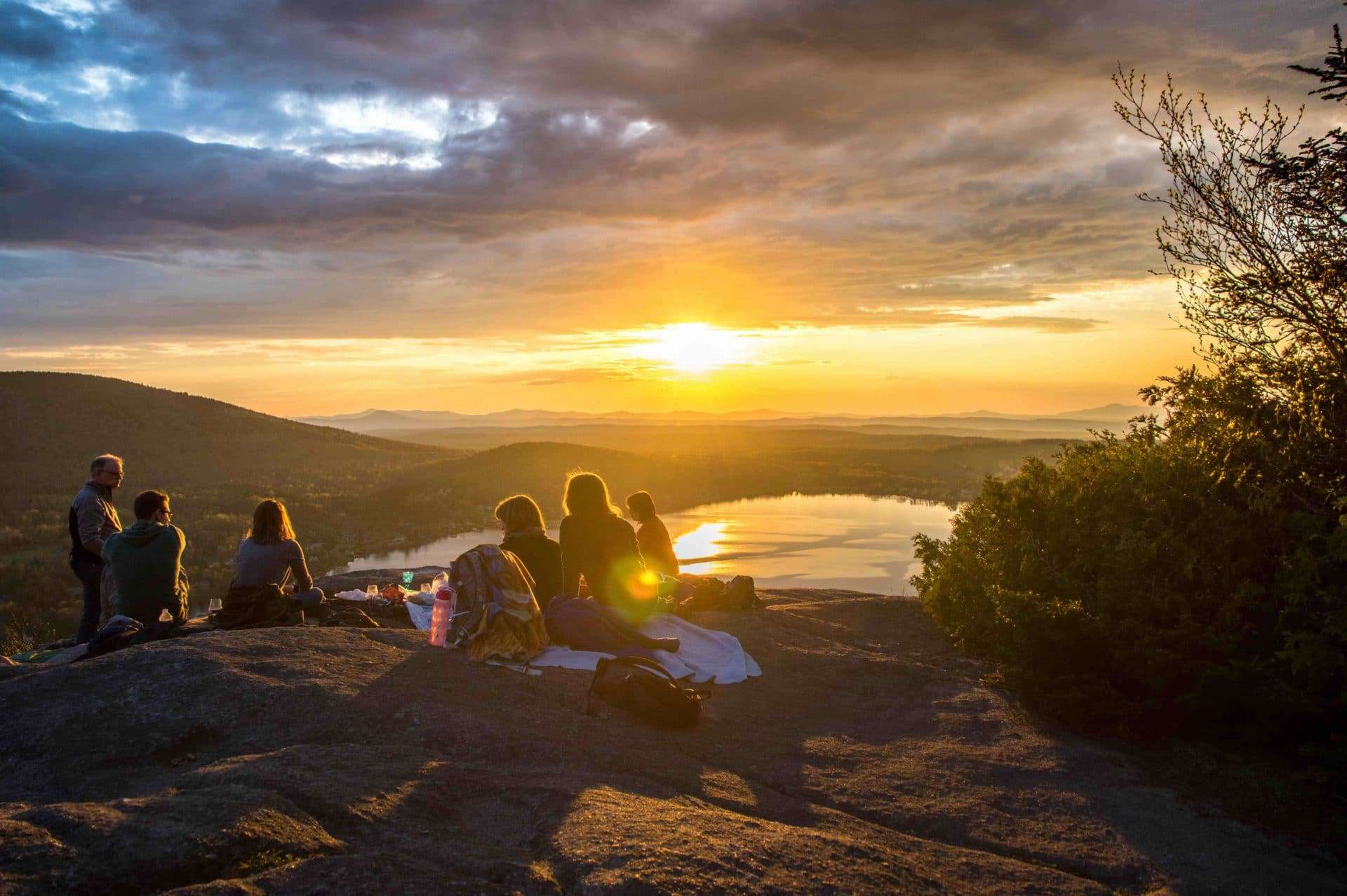Our Physical Environment
by CAPP-USA

Our Physical Environment is a Gift from God to be Cared for Wisely
Our physical environment is where we learn that: “In his desire to have and to enjoy rather than to be and to grow, man consumes the resources of the earth and his own life in an excessive and disordered way…In this regard, humanity today must be conscious of its duties and obligations towards future generations.” (Pope St. John Paul II, 37)
Ecology thus becomes part of Catholic social teaching.
Consistent & Pivotal Calls to Action
Pope St. John Paul II introduced ecology as a formal part of Catholic social teaching and an essential part of faith: “Christians, in particular, realize that their responsibility within creation and their duty towards nature and the Creator are an essential part of their faith.” (World Day of Peace Message, 15)
Pope Benedict XVI reiterated this concern saying: “The earth is a precious gift of the Creator, who has designed its intrinsic order, thus giving us guidelines to which we must hold ourselves as stewards of his creation…In my recent Encyclical, (Caritas in Veritate), I referred more than once to such questions”. (General Audience, 2009)
Pope Francis: Our physical environment has now received a dedicated treatment in Laudato Si’ wherein the Holy Father expresses… “[H]ope that this Encyclical Letter, which is now added to the body of the Church’s social teaching, can help us to acknowledge the appeal, immensity and urgency of the challenge we face.” (Laudato Si’, 15)
There is an inseparable link uniting protection of the environment and protecting life.
We are Called to Exercise Responsible Stewardship
Why? “[A]s the natural environment is given by God to everyone, and its use entails a personal responsibility towards the whole of humanity, in particular, towards the poor and future generations.” (Pope Benedict XVI)
“Nature, in a word, is at our disposition and we are called to exercise a responsible stewardship over it.” (Pope Francis, 9)
“Yet so often… we do not preserve nature; nor do we respect it or consider it a gracious gift which we must care for and set at the service of our brothers and sisters” (Pope Francis, 9) leading to a situation where the earth “cries out to us because of the harm we have inflicted on her by our irresponsible use and abuse of the goods with which God has endowed her.” (Laudato Si’, 2)
Catholic Social Teaching does not Deify the Environment
The Earth is not some primordial Greek deity like Gaia.
The Church reminds us that “[t]he book of nature is one and indivisible: it takes in not only the environment but also life, sexuality, marriage, the family, social relations…Our duties towards the environment are linked to our duties towards the human person, considered in himself and in relation to others.” (Synod of Bishops, XIII Ordinary General Assembly, 21)
“The best way to restore men and women to their rightful place…is to speak once more of the figure of a Father who creates and who alone owns the world.” (Pope Francis, 75)
“It would be wrong to uphold one set of duties while trampling on the other. Herein lies a grave contradiction in our mentality and practice today: one which demeans the person, disrupts the environment and damages society.” (Synod of Bishops, XIII Ordinary General Assembly, 21)
The Unity of the Human and Physical Environments
There is an inseparable link uniting protection of the environment and protecting life: “[N]o peaceful society can afford to neglect either respect for life or the fact that there is an integrity to creation”. (Pope St. John Paul II, 7)
Indeed, “An inadequate presentation of Christian anthropology gave rise to a wrong understanding of the relationship between human beings and the world.” (Pope Francis, 116)
“Hence I readily encourage efforts to promote a greater sense of ecological responsibility which…would safeguard an authentic ‘human ecology’ and thus forcefully reaffirm the inviolability of human life at every stage and in every condition, the dignity of the person and the unique mission of the family”. (Pope Benedict XVI, 12)





